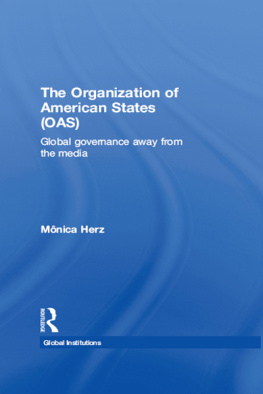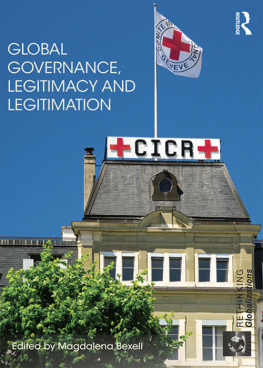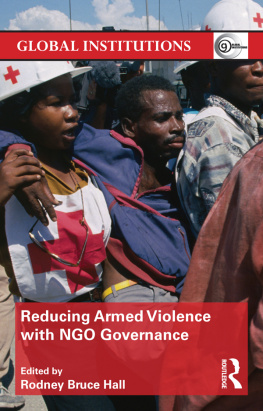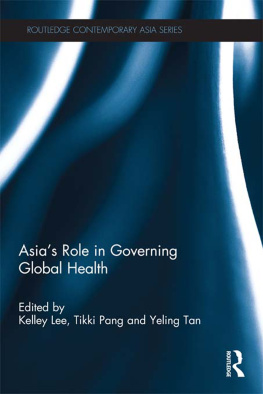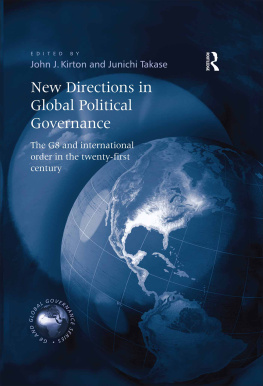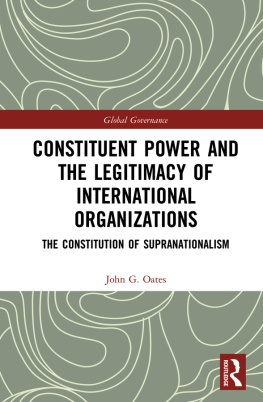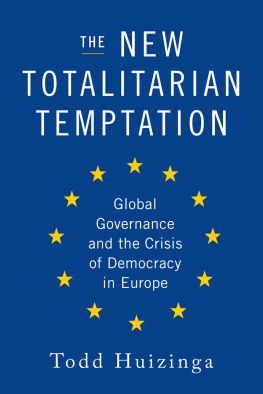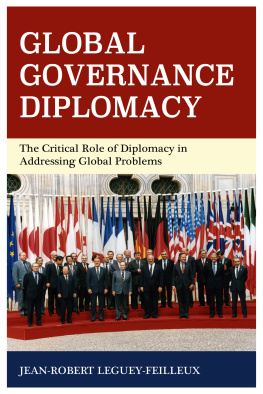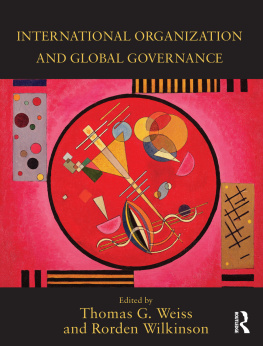Foreword
John OSullivan
For some years, John Fonte has enjoyed an odd and slightly enviable reputation. He is the scholarly defender of democratic sovereignty most likely to be invited to debate the matter with his opponents in the academic school of global governance. This is partly because he is a courteous, well-informed, logical, and honest debater. That happens to be likewise true of his better antagonists, such as Peter Spiro, on the global governance side. It is not true of all, however.
Dr. Fonte is also one among very few scholarly defenders of sovereigntist ideas. In the academy, the media, the law, the foreign policy establishment, the corporate world, the wider political elite, andalmost inevitablythe bureaucracies that serve international institutions and nongovernmental organizations, the ideology of global governance is the prevailing orthodoxy. Those scholars who adopt a hostile or even skeptical attitude to its doctrines are in a distinct minority, resembling an endangered species in the academy.
Although global governance in its current form is a relatively new ideadating roughly from the end of the Cold Warit is increasingly the basis of government decisions, bilateral agreements, and international treaties such as the Kyoto protocols or the treaty establishing the International Criminal Court. Books, op-eds, law journal articles, proceedings of international conferences, and think tank reports advocating various aspects of global governance appear almost daily in both print and electronic media. There has been little organized opposition.
Dr. Fontes book is a major counterblast from the sovereigntist side of the debate. It is also an example of a disturbingly familiar paradox: a lone voice speaking out on behalf of multitudes. As Dr. Fonte illustrates (and as opinion polls confirm), the concept of democratic national sovereignty and the nexus of ideas and institutions built upon it reflect the beliefs of the overwhelming majority of citizens in the United States and other advanced democracies. Americans, Australians, Brits, Italians, and other free nations imagine that they are self-governing peoples who settle domestic political issuessuch as the limits of free speech or an adequate level of welfare provisionby democratic debate and majority vote. Despite occasional grumbling about politics and politicians, they like it that way. All the evidence suggests that they would oppose any open attempt to replace their democracies with another political system.
Global governance is another political system or regime. It seeks to take ultimate political power from parliaments and congresses accountable to national electorates in sovereign states, and to vest it in courts, bureaucracies, NGOs, and various transnational bodies that are accountable only to themselves or to other transnational bodies. In the existing international system, legitimacy flows upward from voters in elections through sovereign governments, via treaties, to international institutions that enjoy specified and limited powers agreed in advance. Under global governance, by contrast, legitimacy flows from postnational elites in transnational institutions, via open-ended treaties, downward to postsovereign governments holding powers regulated by transnational bureaucrats and lawyers, and then finally to the voters.
Advocates of this second system argue that voters enjoy more real power as a result of pooling their sovereignty in transnational bodies that carry greater clout in international affairs, but they are curiously unable to describe how the voters can actually use this power. How can they amend an international law? Or vote members of the European Commission out of office? Or appeal a decision of the International Criminal Court? Or influence the diplomatic campaigns of the European Union, such as its attempt to outlaw capital punishment? The voters can do none of these things because they lack the ultimate democratic sanction: they cannot throw the (transnational) rascals out. It is not the voters but the elites running the courts, the NGOs, and the transnational bodies who exercise sovereign power in a wilderness of committees. In short, global governance is yet another attempt (the third major one since 1917 by my count) to sell elite rule in thin democratic disguise.
Thats a tough sell. So its hardly surprising that the attempt to impose it on liberal democracies has been decidedly covert. Heres how its done: Global governance begins as the ideology of small but influential transnational elites operating outside the spotlight of national politics. Its voice is loud in academic seminars but muffled to the point of being dumb in national political debates and in the general media. Its supporters spread their ideas in the obscurity of learned journals, international conferences, and legal judgments. Then, politicians and bureaucrats travel to pleasant foreign cities to negotiate treaties and covenants that reflect the new orthodoxy. On rare occasionsas when Hillary Clinton led the U.S. delegation to the Beijing conference on womens rightsthese treaties are openly crafted and fiercely debated at home. That slows the process down. So usually it is done between faceless diplomats in smokeless rooms in Geneva, watched only by lobbyists for NGOs and selfinterested multinational corporations.
When they finally emerge from the long process of multilateral negotiation, these global treaties have only begun their careers. They have irreproachable titles signaling noble aspirations, such as protecting women or opposing genocide. But they are subject to extravagant reinterpretation by international courts, national courts, and evenunder the rubric of the new customary international lawconferences of law professors claiming legislative force for their law review articles. The treaties themselves contain provisions that go well beyond a commonsense reading of their headlines. They incorporate monitoring and enforcement mechanisms that transfer authority from national governments to UN agencies and other transnational bodies. And they intrude into the most domestic of domestic policiesan intrusion often sought or welcomed by national courts, bureaucracies, NGOs, and other local bodies anxious to reverse a policy defeat in the nations democratic debate. Indeed, a major impetus behind global governance is the desire of elites to insulate themselves against the possibility of such defeat.
Much of this maneuvering takes place in the political twilight inhabited by NGOs, lobbyists, and pressure groups. The wider public often learns of it only when a UN monitoring body arrives to argue that the treaty requires changes in national law or policy, or in the Constitution. Here are a few examples chosen at random from this book:
(1) The UN committee monitoring the Convention on the Elimination of All Forms of Racial Discrimination told the United States in 2001 to overturn the First Amendment of the U.S. Constitution because it was an obstacle to outlawing what the committee regarded as hate speech. (U.S. diplomats negotiating a treaty routinely insist on laying down reservations when they suspect that some of its provisions might be incompatible with the Constitution. This is something that greatly irks the UN and other global bodies.)
(2) In 1997, UN monitors of the Convention on the Elimination of All Forms of Discrimination against Women complained that only 30% of Slovenias children were in day care centers. Too many children were being raised at home by their parents because the elected Slovenian government was providing benefits to stay-at-home mothers. In the monitors view, this policy reinforced old stereotypes and deprived children of educational and social opportunities.


